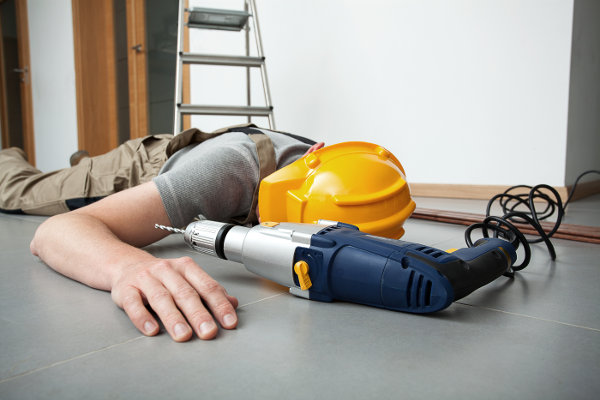Lucky Escapes

Close call incidents do not often result in injuries.
However, ignoring a close call means you could be paving the way for a serious injury to happen. You must report all close calls so they can be investigated and the hazard removed before someone does get hurt. For every reported first aid or minor injury, there are on average hundreds of close calls incidents that have gone unreported.
Close calls (also known as near misses) are situations in which a worker has a narrow escape from getting hurt. The worker probably feels lucky about getting away uninjured. If we pay attention, these incidents can be lucky in another way: They provide a preview of an injury that could happen, so measures can be taken now to prevent it.
Here's an example: A carpenter's assistant picks up a power drill and gets a slight electric shock. He quickly drops the tool, suffering no injury. At this point, he has an important choice to make. If he just forgets the incident, the next person to pick up the tool may have damp hands or may be standing in a puddle of water. That person is bound to get a severe shock. However, if the incident is reported, the tool will be removed from service, checked over and either repaired by qualified personnel or discarded. There will also be a chance to find out why this tool became defective. Was it poorly designed or manufactured? Has the insulation been allowed to get wet or is the cord frayed? How can problems be avoided in the future - perhaps by buying better tools, taking good care of them and inspecting them regularly?
Here's another example: A process industry technician starts to turn on the wrong control, almost creating a hazardous mix of chemicals. He catches his error in time, and no harm is done. Again, at this point he has two choices. He can shrug it off, or he can talk to his supervisor about the close call he just had. He may be able to keep another worker or even himself from making the same mistake and causing a chemical accident. An investigation may disclose a flaw in the design of the controls, making such errors likely or it may show the operators are distracted by fatigue, noise or other factors.
Being aware of near misses off the job can also help prevent accidents. If you have a close call driving in traffic, take the time to review what happened, and why and how you could avoid such problems in the future. If you slip while you are walking, check to see why it happened. A review of the incident might prevent broken bones from a fall in the future.
If you have a near miss, consider yourself lucky on two counts: You didn't get hurt, and you have the chance to prevent a future accident for yourself or someone else.
Ask for any additional comments and questions.